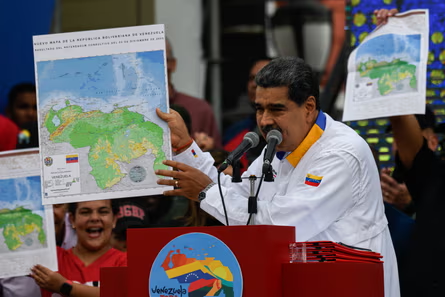
Guyana’s position is grounded in the 1899 arbitration award, which it maintains was a definitive and legally binding settlement of the border dispute. Venezuela, however, has long contested this award, reigniting tensions in recent years with heightened rhetoric and increased diplomatic maneuvers. The ICJ proceedings aim to resolve the matter once and for all, providing clarity and stability for the region.
The international response to this dispute has been overwhelmingly supportive of Guyana’s stance. The United States has publicly emphasized the importance of respecting international law and upholding the principles of peaceful dispute resolution. In a statement, the U.S. reiterated its commitment to Guyana’s sovereignty and territorial integrity, calling on Venezuela to honor the legal processes underway.
Similarly, CARICOM (the Caribbean Community) has stood firmly behind Guyana. As a regional bloc, CARICOM has consistently advocated for respect for international agreements and the rule of law. In a recent statement, CARICOM expressed unwavering support for Guyana and urged all parties to allow the ICJ to adjudicate the matter without interference.
The ICJ’s involvement underscores the critical role of international institutions in resolving disputes between nations. Guyana’s decision to seek recourse through the ICJ reflects its commitment to a rules-based international order. The proceedings provide an opportunity to reaffirm the validity of the 1899 arbitration award and ensure a peaceful resolution to the dispute.
Venezuela’s claims to the Essequibo region have significant implications for the broader geopolitical landscape. The contested territory is rich in natural resources, including gold, diamonds, and oil. Resolving the dispute is crucial not only for Guyana’s development but also for maintaining stability in the region.
As the ICJ deliberates on the case, the international community continues to watch closely. The court’s ruling will carry immense weight, potentially setting a precedent for resolving similar disputes worldwide. For Guyana, the support of key global actors strengthens its position and reinforces the importance of upholding international law in settling territorial conflicts.

Leave a Reply